I posted this on my MMA Fight Prep Facebook page the other day, but really, these are not just fitness training tips for combat athletes, but training tips for nearly all athletes and most of these apply to all individuals all around!
Ten Fitness Training Tips
1. Squat.
I don’t care if you are training for strength, mobility or pattern retention – keep squatting! Squats are not bad for your knees. The way you are squatting may be bad for your knees, but squats are not inherently bad for your knees. Quite the opposite actually!
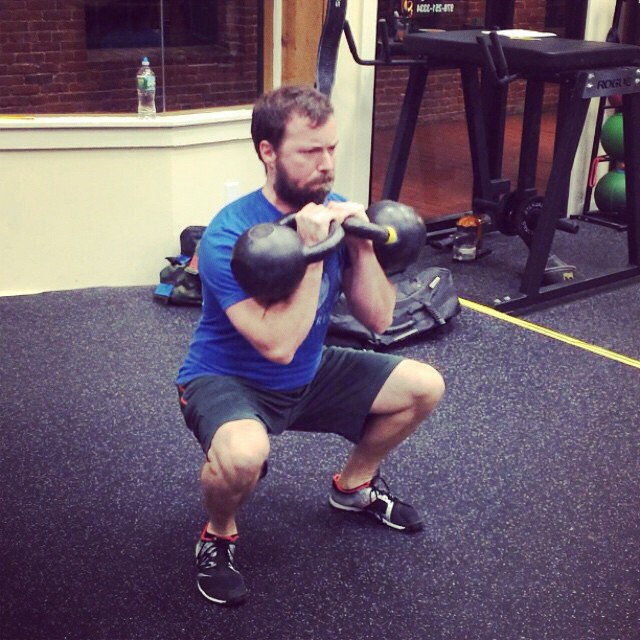
2. Pull more, push less!
It’s especially important to pull more, utilizing exercises like various types of rows and pull-ups, in order to keep your shoulders healthy.
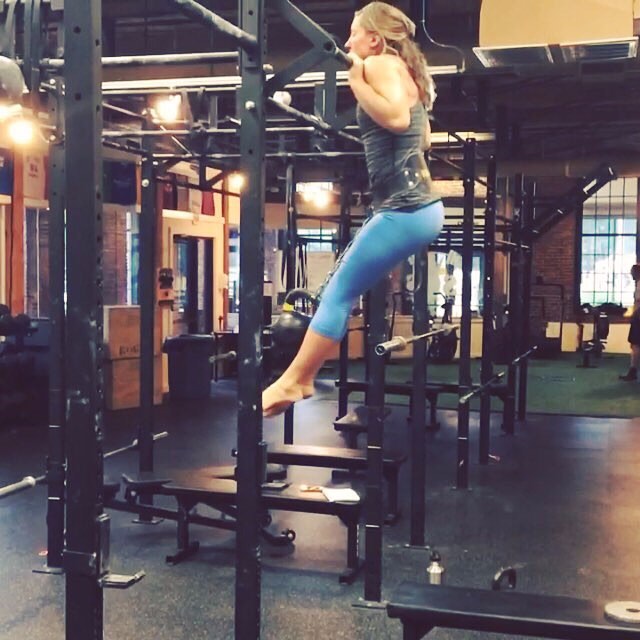
3. Standing hip circles performed as strict as possible are incredible.
Work up to 2 minutes straight and see for yourself. We have people coming to SOS with hip pain quite often (generally too much sitting or too much running is to blame). We emphasize hip mobility during our warmups in adult group training, sports performance training and personal training at SOS. We use effective hip mobility drills like in this video.
4. Train to be explosive!
This means short bursts and lots of rest! This is more geared towards fighters and field/court athletes, but the key to being explosive is understanding that rest plays a large role in your development. Consider explosive training as power development rather than conditioning.
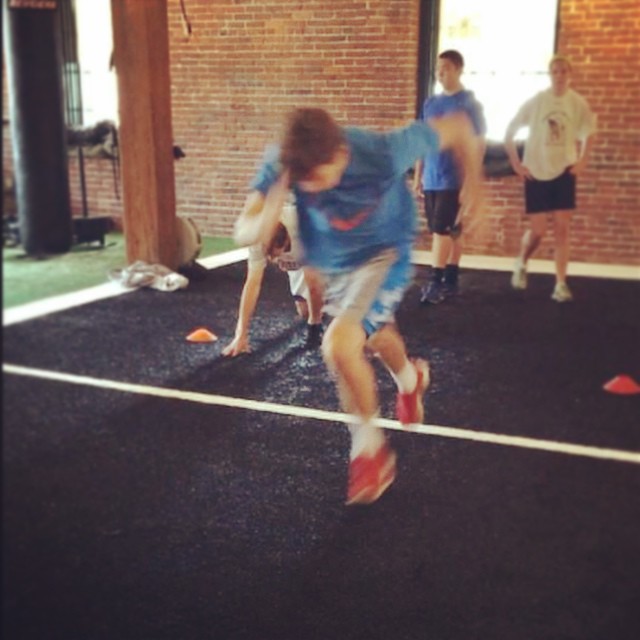
6. Double kettlebell reverse lunges (in the rack position) are game changers!
You’ll utilize muscles you didn’t even know you had. When you perform the lunge with your elbows glued to your ribs and your ribcage pulled down, it forces you to resist against rib flair and lumbar extension which can be challenging, especially with a heavy load.
7. The fighter pull up program is the best place to start if you want to improve upper body strength, grip, and grow some ginormous lats!
Check out more information here and here on the fighter pull-up program. If you want help, ask! It’s a simple program, but not easy.
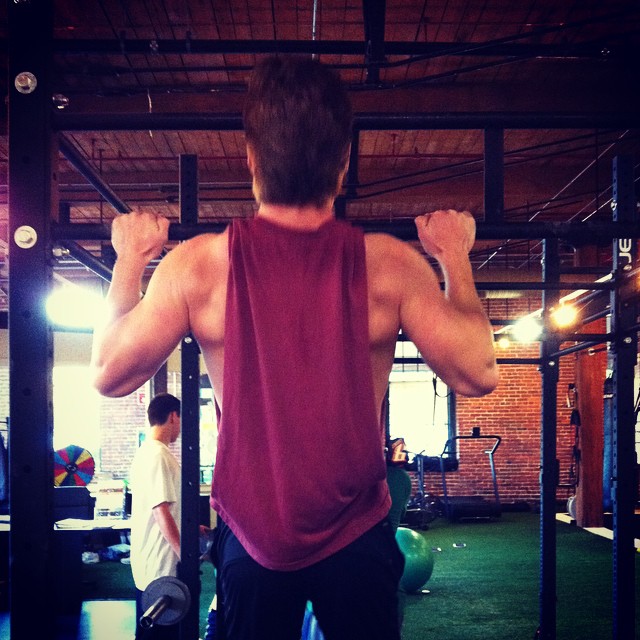
8. Nutrition is the key to weight loss.
(Nutrition is key to cutting weight for combat athletes.)
Fighters, it’s ok to have a cheat day, as long as it’s one day, and doesn’t turn into a week-long or month-long binge and booze fest. Unfortunately, when people achieve a goal or fighters are done with a fight they tend to get completely out of any type of healthy routine. Yup, I see this happen all the time!
Stay tuned for more nutrition posts coming in the next few weeks about how to figure out what is going to work for you. The VERY short answer is “it depends.”
9. Take 1-2 full days off from training every week!
I’m looking at you, ya overtrainers. Believe me, I know training is fun for some people. It feels good when you’re moving more and you think if this feels good, even more will probably feel even better and get you better results. Whether you are looking for more W’s in the cage, more goals or faster fat loss, more is not better after a certain point!)
When it comes to training, stay consistent, but quit while you’re ahead. Better to take planned time off than have to be forced to do so later! Overtraining is not good.
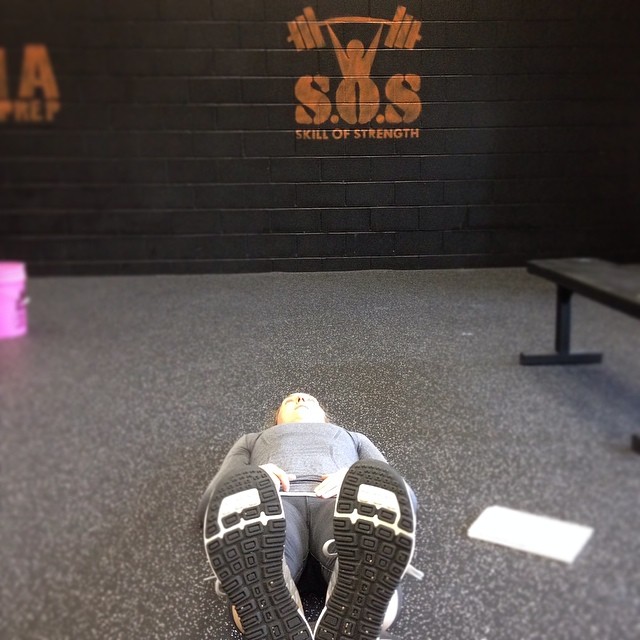
10. Understand the basics of supercompensation and practice them.
You will get stronger and fitter when you use all of these fitness training tips — but this is a crucial piece to focus on! Vern Gambetta lays this down perfectly below:
“To ensure supercompensation, the athlete must be healthy. The training volume, intensity, and frequency must be appropriate for the particular athlete.
If training is too intense, the athlete will struggle to get back to baseline, and no supercompensation will occur.
If training is too easy, there will be very little adaptive response. If extremely easy training is continued over several training cycles, then the principle of reversibility will take effect.
Simply stated, the principle of reversibility is “use it or lose it.” If the training load is adequate and the timing of the application of the training stress is correct, then a supercompensation effect will occur.”
-Vernon Gambetta

I could certainly share more than 10 tips when it comes to training, but hopefully something above got you thinking a bit!

